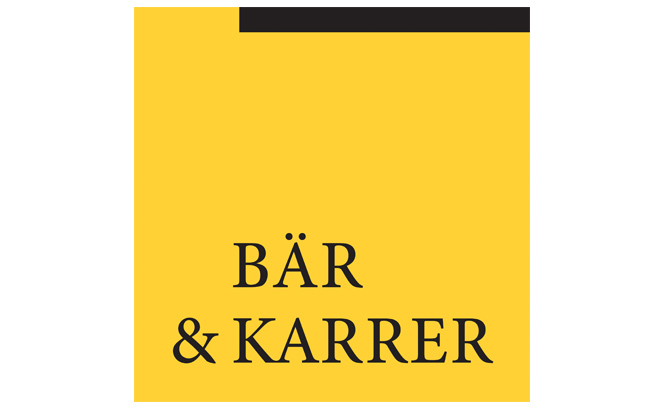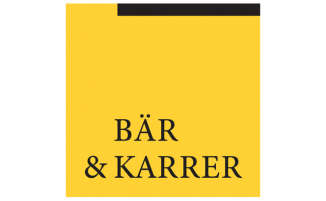What amendments or additions to Swiss ESG laws have been introduced in the past year, and how are these expected to influence businesses in the coming year?
In January 2022, the Swiss rules on due diligence and reporting regarding non-financial matters in the Swiss Code of Obligations (Swiss CO), which were adopted as a counterproposal to the ‘Responsible Business Initiative’ that was rejected by Swiss voters in November 2020, came into force (art. 964a ff. Swiss CO). These rules have started to apply as of the current financial year 2023 and the first reports according to the rules will have to be published next year (covering the financial year 2023). In a nutshell, large, listed companies and large companies supervised by the Swiss Financial Market Supervisory Authority (FINMA) will be required to publish a report on non-financial matters covering environmental matters, in particular CO2 goals, social issues, employee-related issues, respect for human rights and combating corruption. The companies in scope will have to let their shareholders vote on the report on non-financial matters at the general meeting. Additionally, certain Swiss companies will have to publish a report on due diligence regarding child labour and/or conflict minerals and metals.
Even though many of the large Swiss companies have been producing sustainability reports of some sort for several years, so far no precedents of reports following the Swiss law requirements have been published. In addition, the Swiss rules leave a lot of room for interpretation and freedom of implementation, and the development of a Swiss CO reporting practice is currently using additional resources of businesses – which we believe will continue over the coming years, as best practices are established, and the legal framework evolves. At the same time, we expect that Swiss companies will adapt and amend the due diligence efforts in their supply chains. Additionally, based on international developments, particularly the EU Corporate Sustainability Reporting Directive (Directive (EU) 2022/2464) that entered into force in January 2023, the Swiss Federal Council has announced amendments to the Swiss CO rules that are expected to be published for review in summer 2024. It is expected that the scope of application for the reporting on non-financial matters will be expanded. For the reporting on climate matters, it should be noted that a specific ordinance (the Ordinance on the Reporting of Climate Matters) provides guidance on such reporting and will enter into force on 1 January 2024.
Finally, in June 2023, Swiss voters approved a new Federal Act on Climate Protection Targets, Innovation and Strengthening Energy Security (the Climate and Innovation Act), which is an important step for Switzerland’s climate protection efforts and is expected to enter into force in 2025. The main obligation for Swiss companies included in the Climate and Innovation Act is that they must have net zero emissions by 2050 at the latest, considering direct and indirect emissions, with interim greenhouse gas reduction goals (by 2040) for the buildings, transport, and industry sectors. Even though it is not clear (yet) what the implications are for companies that do not reach these targets, there is no doubt that the Climate and Innovation Act is going to significantly influence all businesses in Switzerland over the next two decades, arguably more than the reporting obligations that were introduced recently, since it requires operational changes rather than transparency on the status quo.
‘There is no doubt that the Climate and Innovation Act is going to significantly influence all businesses in Switzerland over the next two decades.’ Dr. Vera Naegeli, Bär & Karrer
How has the revision of the Swiss corporate law affected ESG compliance and reporting requirements for Swiss companies?
In addition to the new due diligence and reporting obligations that have been introduced in the Swiss CO as a counterproposal to the ‘Responsible Business Initiative’ in 2022, certain additional ESG-related regulations in the Swiss CO have been introduced or amended as part of the corporate law reform:
i) transparency obligations regarding certain payments to authorities for raw material companies;
ii) a gender quota on a comply-or-explain basis for the board of directors and executive management of listed companies exceeding certain thresholds (with long transition periods); and
iii) an annual binding shareholder vote on the board of directors’ proposal on the compensation of the board members, the senior management and the advisory board (if any) (the so called ‘say-on-pay’).
The say-on-pay rules have largely applied in Switzerland since 2014, but they were newly introduced into the Swiss CO, with a few notable changes. The corporate law reform introduced the requirement of a consultative vote of the general meeting of shareholders on the remuneration report if the aggregate amount of variable compensation (typically for executive management) is voted on prospectively as well as the prohibition of sign-on bonuses, compensation for post-contractual non-compete covenants, and compensation payments for board members or members of a management body which are not in line with market practice.
Swiss laws applicable to financial institutions contains provisions related to ESG criteria. How have these provisions been integrated into Swiss financial services and institutions?
In addition to the due diligence and reporting obligations in the Swiss CO, ESG rules in the financial industry in Switzerland are characterised by FINMA and the self-regulation of professional associations, eg FINMA requires the largest banks and insurance companies (supervisory categories 1 and 2) to specifically disclose climate-related financial risks and FINMA has adopted guidelines on sustainability-related information for Swiss collective investment schemes. Further, the conduct rules in the Federal Act on Financial Services (FinSA) have been complemented by guidelines and requirements of professional associations aiming at the prohibition of greenwashing, eg the guidelines of the Swiss Bankers Association (SBA) that are mandatory for its members provide that as of January 2024 clients must be informed on ESG risks and ESG characteristics of the products offered, that clients’ ESG preferences must be assessed and documented, and that client advisers should be trained in ESG investment solutions. The Asset Management Association Switzerland (AMAS) has developed a self-regulation for sustainable asset management that its members must adhere to.
In light of the Swiss Parliament’s recent discussions on biodiversity, how might emerging environmental regulations impact businesses within Switzerland?
Based on Switzerland’s biodiversity strategy, the Federal Council adopted the biodiversity action plan in 2017 with a current implementation phase until the end of 2024. However, due to certain shortcomings of the plan, in 2020, NGOs have launched the biodiversity initiative calling on the government and the cantons to preserve and increase biodiversity in Switzerland, mainly by protecting land and by providing more financial resources. The Swiss Parliament is currently discussing the biodiversity initiative and an indirect counterproposal. While it remains to be seen whether Swiss voters will have to vote on the biodiversity initiative, it is imminent that Swiss companies will increasingly be required to address environmental aspects of how they do business (see also the next question).
Considering the Swiss Federal Council’s objectives for a circular economy, what legislative measures are anticipated to promote sustainability and resource efficiency among Swiss businesses?
The Federal Council aims to foster the circular economy by a revision of the Environmental Protection Act, which is currently still being discussed in the Swiss parliament. The revised act will introduce specific regulation on circularity measures aiming at conserving natural resources, reusing products and recycling materials that are currently often disposed of. The Swiss regulation is inspired by the EU new circular economy action plan, one important pillar of the European Green Deal, and it will have direct effects on Swiss businesses.
For more information, please contact:

Dr. Vera Naegeli, partner
Dr. Vera Naegeli heads the ESG practice of Bär & Karrer. She regularly advises clients, including listed and financial market supervised companies, on Swiss ESG requirements, and works with several companies on ESG governance related matters. Further, Vera is experienced in international and domestic M&A transactions and in general corporate and regulatory matters. In 2022, Vera won the IFLR Rising Star Award EMEA for M&A and the jurisdiction award for Switzerland (2022). Euromoney’s Expert Guide lists her as Rising Star in the fields of corporate/M&A/private equity.
Vera teaches at the Executive School of Management, Technology and Law (Executive MBA) of the University of St. Gallen and at the MAS Economic Crime Investigation at the Lucerne University of Applied Sciences and Arts. She regularly publishes in her field of expertise.
Bär & Karrer
Brandschenkestrasse 90
CH-8002 Zurich
T: +41 58 261 55 89
E: vera.naegeli@baerkarrer.ch














